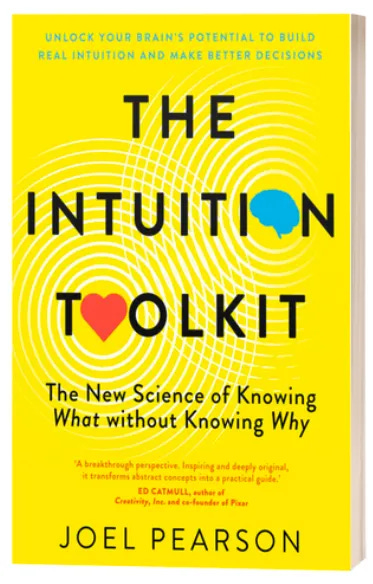Wake Up! The Hidden Psychological Crisis Driven by AI
Curated, Science-Driven Insights into the Brain.
Future Minds newsletter breaks down the science of the mind and brain into short and easy-to-digest insights and actionable take-homes. Sign up and join the many others who receive it directly in their inbox.
A quick note for our Premium Readers - very soon I will be sending more fascinating Aphantasia research, and also I will open our Q&A.
Also, Substack is having issues with comments, so some of you may not be able to comment on this post. I have created a chat in Substack for all of us to discuss this important subject, looking forward to having a chat with all of you. Here is a link to show you how to join the chat.
We stand at a pivotal moment in human history, as the rapid evolution of AI threatens to reshape the very fabric of our society, challenging our cognitive abilities and mental well-being in unprecedented ways. The psychological impact of this technological revolution is a looming crisis that demands immediate attention and coordinated action, however, very few in science are taking action.
Our minds are on the cusp of an unprecedented transformation due to AI's rapid advancement, yet we remain woefully unprepared for the magnitude of change awaiting us. The psychological readiness for this tidal wave of innovation is alarmingly overlooked, and the consequences of inaction could be severe. The psychological effects of AI will dwarf anything we have seen from social media thus far – that much is clear already.
I implore you to take the time to listen to the audio episode linked below (it’s from a Radio National podcast), where I encapsulate my insights on this pressing issue.
The reality is that tech giants and countries are pouring vast resources into AI development, often navigating around ethical dilemmas. From what I've observed—and I have raised this to some of these companies several times—there appears to be a clear void in research on AI's human psychological impacts.
The time to act is now. The AI revolution is rapidly becoming a central topic in mainstream discourse, with an increasing number of corporations, individuals, and educational institutions seeking guidance on navigating this new frontier. People are already feeling stress and anxiety from the unprecedented levels of uncertainty of what will happen next, and how it will affect them, and it’s my responsibility as a leading academic to provide the necessary wisdom and turn that into products and services that can help us all.
So, what exactly are these AI pitfalls, and what steps can we take? Read on and listen to All in the Mind (ABC Australia Radio and Podcast) episode below to find out.
"Scarier than killer robots": why your mind isn't ready for AI.
The psychological impact of AI is worse than the Terminator
AI makes us feel both amazed and a bit scared. There's a palpable tension between recognising AI's potential for remarkable contributions, such as answering complex queries or advancing medical technology, and the fear of its sinister capabilities, which are often dramatised in science fiction. But sometimes, we're more worried about scary future stories, think Terminator, than how AI is changing how we think and feel and its impact on our psychology.
It's important to start talking about how AI should fit into our lives, and not just in a way that’s about right and wrong, but also how it affects our feelings, minds and mental health.
The call is not just for the construction of ethical frameworks but for the incorporation of neuroscience and psychology into the development of AI. We want to make sure we're thinking about how AI might affect our minds and keep our wellbeing in check while we're at it. In a rapidly changing environment where the impact of generative AI is already evident through innovations like video realistic media generation, these concerns are not only foresight but urgent. Having humanoid robots on the horizon further intensifies the need for interdisciplinary collaboration in guiding the direction of AI's integration into society.
AI is not going anywhere, so it’s up to us humans to start having these conversations, create awareness and start acting.
The new reality
One scary thing about AI is how it can trick us into thinking something fake is real, like deep fakes that change how we remember things. This could mess with who we are and hurt society. It's big stuff, and we need to pay attention to it now so we can handle it better as it grows.
AI can also change the way we make friends. Take Replica, for example. It's a computer program that acts like it's your friend, but it's not real. When Replica was changed just a little, a lot of people got very upset. It shows how easily we can feel close to something that's not ‘real’. We need to understand how human-AI relationships will change human-human relationships. And if AI relationships give us everything we want or think we want, what does that mean for us? It might stop us from growing as people.
We should also be careful about how AI can trick our brains. We need to remind ourselves what makes us human, even when surrounded by all this technology. We don’t want to just let changes happen; instead, we want to help shape these changes in ways that keep us happy and true to ourselves.
Mental Meanderings
Is it fair for companies to use AI that could widen the gap between the rich and the poor? What responsibilities do tech companies have to society?
Would you feel psychologically safe knowing that your behaviours and emotions are continuously analysed by AI at your job or in public spaces?
Considering the rise of AI companions and virtual friends, could these technologies lead us to devalue real human connections?
Have you fallen for a deep fake yet? Tell us about it.








